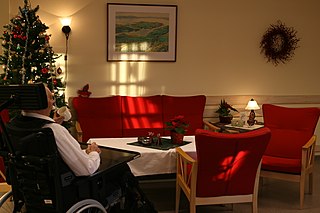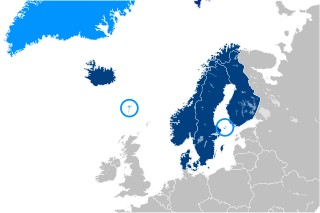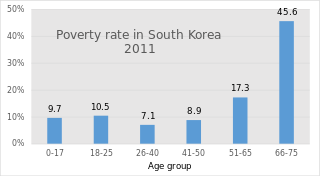Overview
In 2008, the INSEE identified 1 314 920 persons aged over 85 years in France. In 2015, the figure is expected to reach than 2 million. The number of people with high handicap could rise from 660 000 in 2005 to 940 000 in 2025. Meanwhile, because of population aging, the average number of potential caregivers by dependent elderly person will tend to decrease.
As the four branches of the Social Security (sickness, diseases at work, family, old age) will not be able to cope with this demographic challenge, the Government plans to take care of dependency by the creation of a fifth risk, combining public funding for the solidarity and the establishment of an insurance system encouraged by tax incentives.
Existing laws
The law of 24 January 1997, defines dependency as "a state in which the person who, notwithstanding the care that is likely to receive, needs support for the performance of actions essential to life or requires regular supervision".
In 2008, public spending related to the care of dependent elderly people (health care benefits and benefits of compensation for loss of autonomy) was around 19 billion euros per year, or 1% of GDP.
The law of 30 June 1975 established the third person compensatory allowance (Allocation compensatrice tierce personne or ACTP) for people with disabilities. It was funded by taxes, and was extended in 1983 to the elderly. It was replaced by the specific dependency allowance (Prestation spécifique dépendance) with the law of 24 January 1997, and was finally suppressed with the implementation of the individual allowance for autonomy (Allocation personnalisée à l’autonomie or APA) on 1 January 2002.

Welfare is a type of government support intended to ensure that members of a society can meet basic human needs such as food and shelter. Social security may either be synonymous with welfare, or refer specifically to social insurance programs, which provide support only to those who have previously contributed, as opposed to social assistance programs, which provide support on the basis of need alone. The International Labour Organization defines social security as covering support for those in old age, support for the maintenance of children, medical treatment, parental and sick leave, unemployment and disability benefits, and support for sufferers of occupational injury.
Elder abuse is "a single, or repeated act, or lack of appropriate action, occurring within any relationship where there is an expectation of trust, which causes harm or distress to an older person." This definition has been adopted by of the World Health Organization (WHO) from a definition put forward by Action on Elder Abuse in the UK. Laws protecting the elderly from abuse are similar to and related to laws protecting dependent adults from abuse.
A disability pension is a form of pension given to those people who are permanently or temporarily unable to work due to a disability.

Elderly care, or simply eldercare, is the fulfillment of the special needs and requirements that are unique to senior citizens. This broad term encompasses such services as assisted living, adult day care, long term care, nursing homes, hospice care, and home care. Because of the wide variety of elderly care found nationally, as well as differentiating cultural perspectives on elderly citizens, it cannot be limited to any one practice. For example, many countries in Asia use government-established elderly care quite infrequently, preferring the traditional methods of being cared for by younger generations of family members.
Social welfare, assistance for the ill or otherwise disabled and the old, has long been provided in Japan by both the government and private companies. Beginning in the 1920s, the Japanese government enacted a series of welfare programs, based mainly on European models, to provide medical care and financial support. During the post-war period, a comprehensive system of social security was gradually established.
Housing Benefit is a means tested social security benefit in the United Kingdom that is intended to help meet housing costs for rented accommodation. It is the second biggest item in the Department for Work and Pensions' budget after the state pension, totalling £23.8 billion in 2013–14.
Social Security Disability Insurance is a payroll tax-funded federal insurance program of the United States government. It is managed by the Social Security Administration and designed to provide income supplements to people who are physically restricted in their ability to be employed because of a notable disability. SSD can be supplied on either a temporary or permanent basis, usually directly correlated to whether the person's disability is temporary or permanent.
Social security, in Australia, refers to a system of social welfare payments provided by Australian Government to eligible Australian citizens, permanent residents, and limited international visitors. These payments are almost always administered by Centrelink, a program of Services Australia. In Australia, most payments are means tested.

Social security is divided by the French government into four branches: illness; old age/retirement; family; work accident; and occupational disease. From an institutional point of view, French social security is made up of diverse organismes. The system is divided into three main Regimes: the General Regime, the Farm Regime, and the Self-employed Regime. In addition there are numerous special regimes dating from prior to the creation of the state system in the mid-to-late 1940s.
Welfare in France includes all systems whose purpose is to protect people against the financial consequences of social risks.
The French health care system is one of universal health care largely financed by government national health insurance. In its 2000 assessment of world health care systems, the World Health Organization found that France provided the "best overall health care" in the world. In 2017, France spent 11.3% of GDP on health care, or US$5,370 per capita, a figure higher than the average spent by rich countries, though similar to Germany (10.6%) and Canada (10%), but much less than in the US. Approximately 77% of health expenditures are covered by government funded agencies.
Social care in England is defined as the provision of social work, personal care, protection or social support services to children or adults in need or at risk, or adults with needs arising from illness, disability, old age or poverty. The main legal definitions flow from the National Health Service and Community Care Act 1990, with other provisions covering disability and responsibilities to informal carers. That provision may have one or more of the following aims: to protect people who use care services from abuse or neglect, to prevent deterioration of or promote physical or mental health, to promote independence and social inclusion, to improve opportunities and life chances, to strengthen families and to protect human rights in relation to people's social needs.
Disability benefits are funds provided from public or private sources to a person who is ill or who has a disability.
The Allocation de solidarité aux personnes âgées (ASPA) is a French state pension for elderly people, whether former employees or not, on low incomes. It replaced the multiple components of the minimum pension from 1 January 2006. Existing recipients of the minimum pension are not automatically transferred to the ASPA, but may do so on request.

Social security in Finland, or welfare in Finland, is very comprehensive compared to other countries. In the late 1980s, Finland had one of the world's most advanced welfare systems, one that guaranteed decent living conditions for all Finns. Since then social security has been cut back, but still the system is one of the most comprehensive in the world. Created almost entirely during the first three decades after World War II, the social security system was an outgrowth of the traditional Nordic belief that the state was not inherently hostile to the well-being of its citizens, but could intervene benevolently on their behalf. According to some social historians, the basis of this belief was a relatively benign history that had allowed the gradual emergence of a free and independent peasantry in the Nordic countries and had curtailed the dominance of the nobility and the subsequent formation of a powerful right wing. Finland's history has been harsher than the histories of the other Nordic countries, but not harsh enough to bar the country from following their path of social development.
Dignity of risk is the idea that self-determination and the right to take reasonable risks are essential for dignity and self esteem and so should not be impeded by excessively-cautious caregivers, concerned about their duty of care.
In Japan, a person with a disability is defined as: "a person whose daily life or life in society is substantially limited over the long term due to a physical disability or mental disability". Japan ratified the United Nations Convention on the Rights of Persons with Disabilities (CRPD) on 20 January 2014.

The Ecuadorian Social Security Institute, is an autonomous entity that is part of the social security system of Ecuador and is responsible for implementing the mandatory universal insurance, according to the Constitution of the Republic, in force since 2008.

South Korea's pension scheme was introduced relatively recently, compared to other democratic nations. Half of the country's population aged 65 and over lives in relative poverty, or nearly four times the 13% average for member countries of the Organisation for Economic Co-operation and Development (OECD). This makes old age poverty an urgent social problem. Public social spending by general government is half the OECD average, and is the lowest as a percentage of GDP among OECD member countries.





